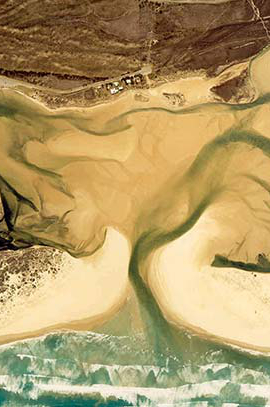MDBA boss back from month of listening
 The new chief of the Murray Darling Basin Authority has reported on his first few weeks in the job.
The new chief of the Murray Darling Basin Authority has reported on his first few weeks in the job.
MDBA chief Phillip Glyde is back from a month of touring the country to connect with Basin communities.
He says he saw the confusion and frustration of those “struggling” under the plan, as well as drought and other factors, but has urged communities and governments to “stay the course”.
His comments this week come alongside the Murray-Darling Basin Authority’s annual report for 2014-15.
There was often no love lost between the MDBA and the communities Mr Glyde visited.
Many regional areas say the plan has deprived local industries of vital water supplies, but Mr Gkyde says it is a necessary sacrifice.
“What we're doing with the Basin Plan, and the whole idea governments had with the Basin Plan, was to provide that sustainable footing for Australian agricultural irrigated industries to survive,” he said.
“That, to me, is one of the great challenges that the irrigated industry has: we do have to make sure that the water use is sustainable, not just now, but over the next 20, 30, 40 years as the climate will change.
“From an environmental perspective, I think it's really important that we maintain the river. It provides a source of income for a lot of other industries: tourism, recreation, etc, and it provides a lot of social wellbeing for the communities who live around the river.
“We want to make sure that those communities are sustainable, that the environment's sustainable, that Indigenous people still get the sort of values they used to be able to get from the river.
“Being associated with trying to put the uses of the river on a sustainable footing is a really significant challenge, and one that will benefit the country in the long-run and I'm proud and delighted to be part of it.”
Even since it was first imposed in November 2012, the Basin Plan has been described as “a wrecking ball” by some river communities.
But the agreement between the Commonwealth, NSW, Victorian, Queensland and South Australian governments has some lofty goal, and if successful could bring sustainable benefits to all.
It aims to do this by removing 2,750 gigalitres of water entitlements from irrigated farming, redirecting them to Murray-Darling rivers and wetlands instead.
Communities that rely on irrigated industries in particular say the environment has prioritised over people and their industries.
Trying to juggle the “triple bottom line” of meeting environmental, economic and social targets is one of the biggest challenges, the MDBA chief said.
“We're not completely restoring the river to its pristine, pre-settlement condition. That's an impossibility. The fact there is a target of 2,750 gigalitres, that is in fact itself a compromise to balance economic, environmental and social needs,” he said.
“The whole approach has been triple-bottom-line, but I think it's hard sometimes if you're the person at the forefront of that change. If you're that irrigator or that community that's dependent on irrigation, then you're feeling the brunt of that change, so it's understandable that there are those views there.
“But my first month has revealed that it is a triple-bottom-line approach, and we're still trying to do that, we're still trying to make sure that the changes we're going to make to the plan over the course of 2016 will also reflect that triple-bottom-line thinking.”







 Print
Print